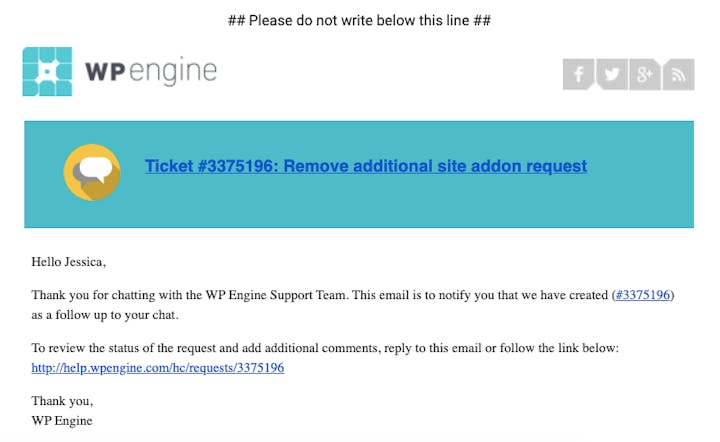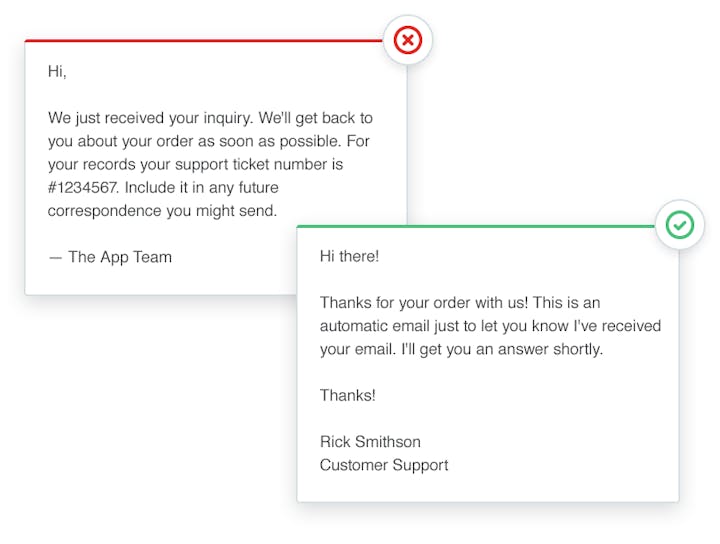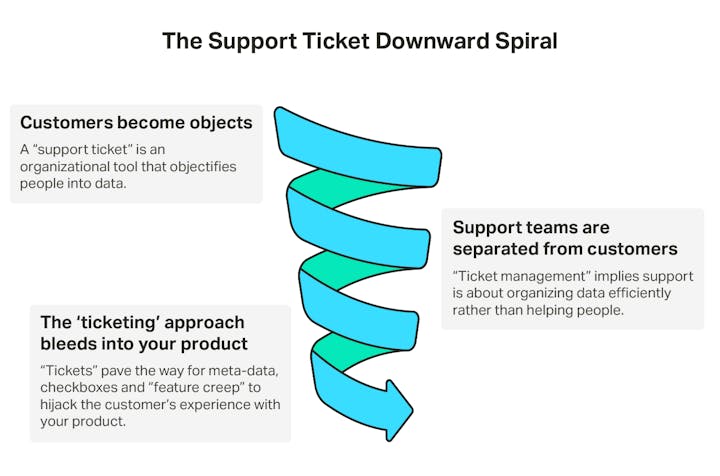What is a Support Ticket (& Why We Don’t Use That Term)


Support tickets, customer service ticketing systems, help desk tickets — these terms are ubiquitous in the customer service software landscape. Most support software on the market uses “ticketing” to describe what their help desk does, because… that’s just what it’s called.
But the term “support ticket” is impersonal. It evokes memories of sitting in the DMV waiting for hours for the number on a small slip of paper to be called. And that’s probably not the mindset you want your customers to have at the very beginning of their interactions with your support team.
Every customer service expert knows that choosing the right words matters. That’s why here at Help Scout, we approach customer interactions as conversations — not support tickets.
What is a support ticket?
“Support ticket” is a term popularized by support software to describe an interaction between customers and support teams. When customers have problems, they open support tickets. Service representatives interact with customers by responding to support tickets. When the issue is resolved, the ticket is closed.

When it comes to describing how support software works, the terminology makes sense. Each request gets its own unique ticket with a unique ticket number. This isolates customer requests so that nothing gets overlooked and makes it easy to search for and find specific interactions.
And while “support ticket” is a logical way to describe how support software works, it makes less sense when companies use the term in their interactions with customers.
“Support tickets” vs. “conversations”
At Help Scout, we don’t use the term “support tickets.” Instead, we refer to the interactions between customers and support teams as “conversations.”
We’ve had customers ask about why we use the term “conversations” to describe what our help desk does. Is a conversation the same thing as a ticket? If not, what are the differences? Is this just another example of a software company getting a little too precious with its nomenclature?
The choice to call customer interactions “conversations” as opposed to “support tickets” didn’t come lightly or as a way to stand out. Rather, we wanted to highlight the difference in feeling between robotic transactions and human interactions.
When we built Help Scout, choosing to say ‘conversations’ instead of ‘tickets’ informed so many of our decisions, like simplifying the customer portal and removing ugly ticket numbers that are mostly there for computers to read.
Nick Francis

As easily as “CASE#00068694A60000Cgre:ref” rolls off the tongue, we think we can do better.
Would you rather be treated as a ticket, or as a person?
Great customer service teams understand their job isn’t about “resolving tickets.” It’s about helping people. The software they use should support that personal approach, not undermine it through language and design.

Optimize for humans, not machines
Customer portals — where people seeking help need to register and sign in to a support ticket system — were designed to make things easier for companies rather than the customers those companies are actually serving.
But in the end, failing to put the customer first is a net loss for companies. When you label your customer with a number, they feel treated like a number.
Instead of having a conversation it made me feel more like a task to be checked off. I also had to register!
Ethan Walfish

With Help Scout, you have all the power of a customer ticketing system behind the scenes while still maintaining a great experience for your customers. On the customer’s side, all they see is a friendly email.

When you respond to your customers from Help Scout, they receive a normal email. There’s no ticket number to remember or customer portal to log into.
We designed Help Scout to be a help desk that understands that customer experience comes first. No ugly customer portals, no “## Please do not write below this line ##” or “Re: CASE#00068694A60000Cgre:ref” email subject lines — it’s customer service software that doesn’t feel like customer service software.
Inviting conversations into customer support
No one needs to explain what a conversation is. When your support team is empowered to have conversations with customers, you create room for the different, special, and delightful kinds of human interactions that a help desk ticketing system can’t foster.

That’s why Help Scout doesn’t look like an explosion in a spreadsheet factory, and it’s why people often tell us they love getting help from support teams using Help Scout.
We built Help Scout with all the capabilities of a customer service ticketing system minus all the impersonal and complicated details. It doesn’t treat people like tickets; it facilitates conversations between the people looking for solutions and the people who can help them.
Language matters. Facilitating conversations as opposed to help desk tickets informs all of our decisions, and that’s what makes the difference.




